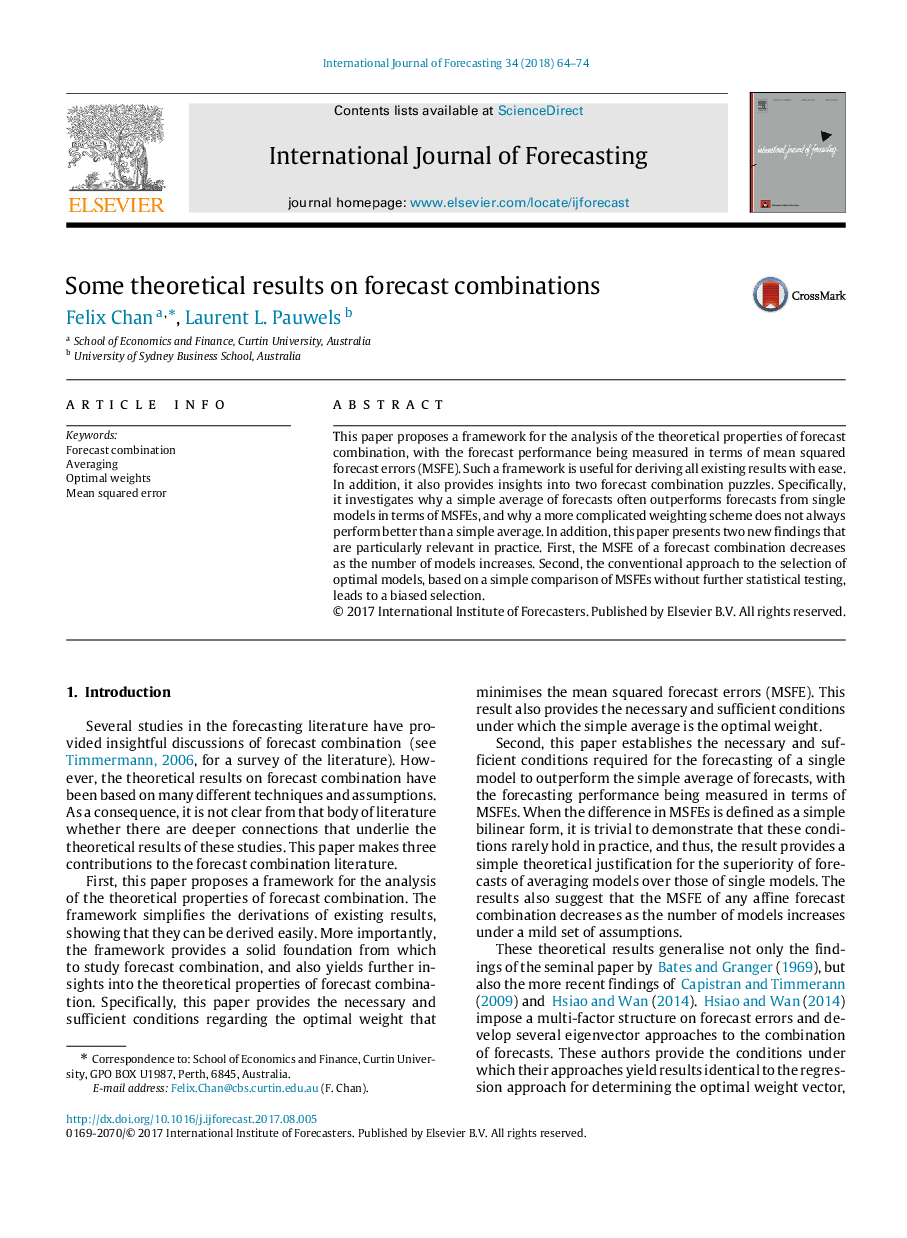| Article ID | Journal | Published Year | Pages | File Type |
|---|---|---|---|---|
| 5106315 | International Journal of Forecasting | 2018 | 11 Pages |
Abstract
This paper proposes a framework for the analysis of the theoretical properties of forecast combination, with the forecast performance being measured in terms of mean squared forecast errors (MSFE). Such a framework is useful for deriving all existing results with ease. In addition, it also provides insights into two forecast combination puzzles. Specifically, it investigates why a simple average of forecasts often outperforms forecasts from single models in terms of MSFEs, and why a more complicated weighting scheme does not always perform better than a simple average. In addition, this paper presents two new findings that are particularly relevant in practice. First, the MSFE of a forecast combination decreases as the number of models increases. Second, the conventional approach to the selection of optimal models, based on a simple comparison of MSFEs without further statistical testing, leads to a biased selection.
Related Topics
Social Sciences and Humanities
Business, Management and Accounting
Business and International Management
Authors
Felix Chan, Laurent L. Pauwels,
